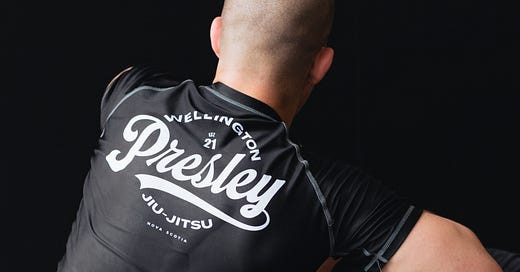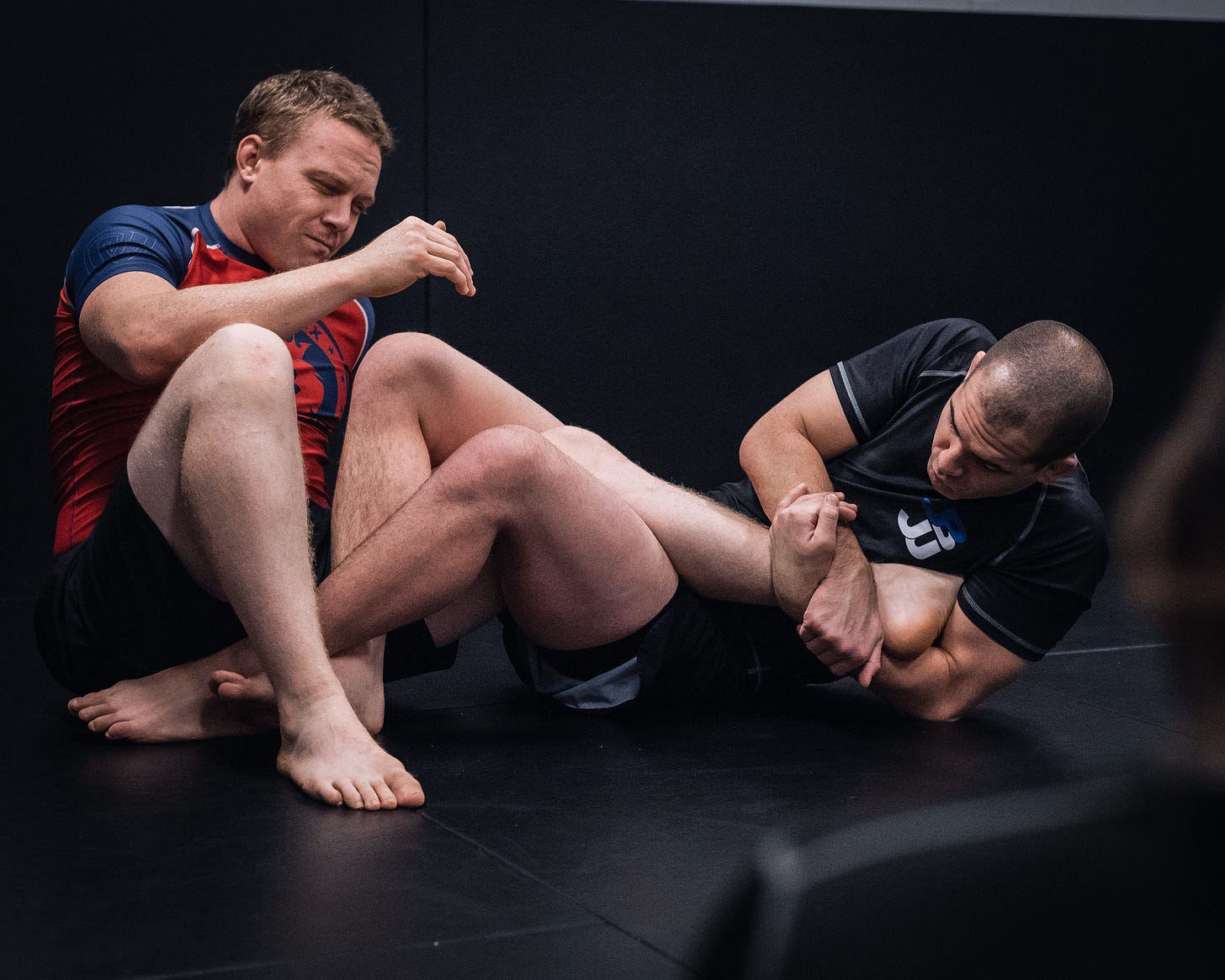1.) Going 100% intensity every round
Be mindful of intensity when rolling with different partners. BJJ is kind of like dating. You start the roll and get a feel for the other person’s speed/pace. You try to match it accordingly. If you go 100% every round you are being too aggressive and likely using poor technique. Sometimes people appreciate a nice and slow pace. When you start to slow down you will have more time to think and your cardio will improve. Going 100% intensity will gas you out quickly and also increase your risk of injury. This took me until purple/brown belt level and too many injuries to realize and put into practice
(Picture. Sparring etiquette and tips. Credit to Pica Pau Jiu-Jitsu.)
2.) Knee wrestling
Have you ever seen two people start a round with both people on their knees? For one it looks really weird. It’s totally not a practical situation at all and you should not waste a single second knee wrestling. Why? Because one of you should just stand up and get the advantage of being on top with greater leverage. White belts sometimes start on knees as a neutral position, but they shouldn’t. Start with one person on the ground (seated or supine) and the other person on their knees, if starting standing up is not an option.
3.) Not tapping out when in a submission
It’s better to tap too early than too late. Say I put on an armbar, I will very slowly extend it to just before the breaking point where they feel pain and hold it for a few seconds to give them a chance to tap out. Don’t rely on your partners kindness to release a submission before the breaking point, literally. I have lost count of the amount of armbars I’ve had fully extended and my partner is still moving around not realizing the danger. At that point I will tell them, “You’re done here, tap out.” Luckily I’m a nice guy and a good teacher so I never hurt anyone. But as a developing BJJ student you can’t count on your peers to have the same level of control as your coach.
(Picture. Inside heel hook submission. If you are this deep in a heel hook, tap out.)
4.) Getting too emotional
BJJ is hard. When you lose, it feels a lot more vulnerable and painful than losing in a team sport. I always thought of BJJ training rounds like a video game when I lose and have to “tap out”, I just get another chance to reset the game. Training is training, don’t be too proud if you do well or too butthurt if you don’t. Just move on to the next session. You’re gonna have many highs and lows. Tournaments I always found harder to be less emotionally invested. You train really hard for tournaments, put a lot of time, effort and money, which makes you really want to win and sometimes you don’t. Growing up with BJJ through my 20’s has helped me become more emotionally stable but there’s always gonna be tough moments. That’s why training is so important.
5.) Only using your “A” game
If you’re a few weeks out from a competition, this is fine. But generally you always want to be building new skills and filling the gaps in your weakest areas. If you on rely on your best techniques then you sell yourself short. When you start BJJ you don’t have an “A” game, you’re just desperately trying to find a few things that actually work. But trust me, you will get to a point where you know you are relying on those moves too much and that is when you should try to work on something you know you’re weaker at.
6.) Over coaching
Sometimes you need to shut the fuck up. Myself included. I’m not saying don’t ever offer advice on a technique. But we have all seen someone on the very first rep of drilling a new technique get over coached by someone trying to fill their head with 10 different key details they think are important. Sometimes when I’m coaching and watching someone struggling with a move, I want to say more but I don’t. I think it’s better to let people get more reps with the technique and let them have the “aha moment” where it goes from not working to working. They will remember how that right technique feels, they won’t remember the 10 things you said to help them do it better. Less is more.
When someone is struggling I find the best way to help is to demonstrate the move again and the student will notice something they were not doing.
Please follow the writer Josh Presley on Instagram, YouTube, TikTok & Facebook @PresleyBJJ for daily BJJ content, and tune into The Great Canadian BJJ Show Podcast on Spotify or the podcast app. www.presleybjj.com






